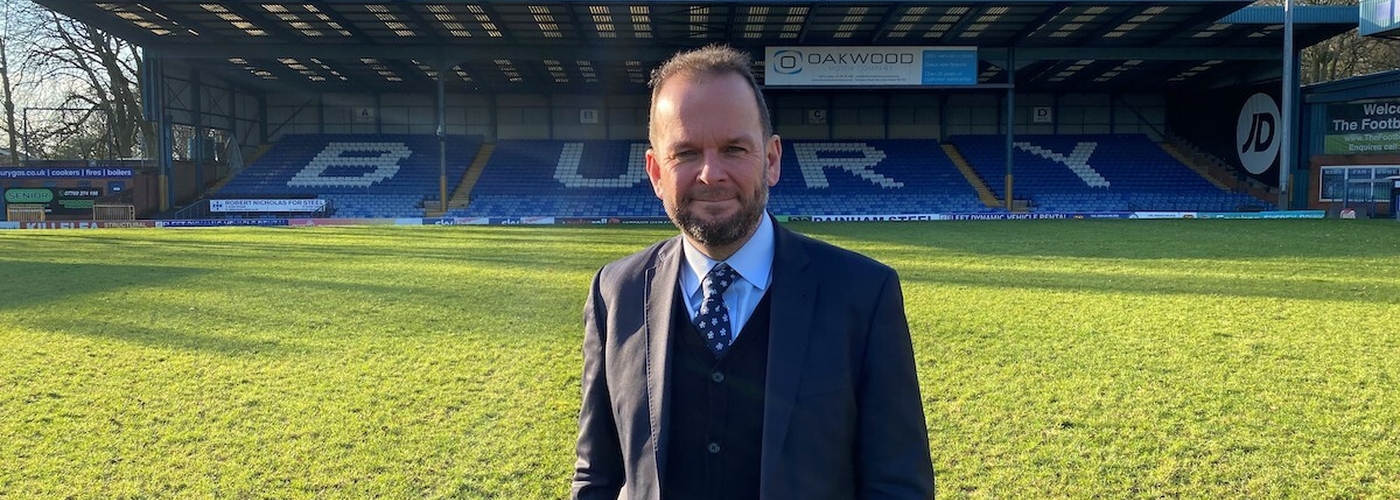The MP for Bury North explains why sport, from football to cricket to yoga, is so important to levelling up
"Getting on with the job" is a popular phrase in politics right now, even if not everyone agrees on exactly what that job is. However, despite turbulent times and a churning news cycle, parliamentarians of all stripes are actually getting some work done.
A case in point is the Conservative MP for Bury North, James Daly. When I talk to him he is at his desk in his Westminster office, not pondering Marat-esque manoeuvres but instead describing to me the glory of Bury FC's ground, Gigg Lane, which he campaigned to save when the club went into administration.
The state gets the most out of allowing people the freedom to and the opportunity to participate in the things that they want to do.
James is here to talk all things active as he heads up the Question of Sport inquiry, conducted by the Northern Culture All Party Parliamentary Group (APPG). These unofficial working groups bring together politicians of all persuasions to make recommendations to the Government. The first inquiry by the group made a compelling argument for culture to be a lynchpin of levelling up. Now they have set their sights on sport.
I'd previously attended the launch of the inquiry, of which James is co-chair of the group along with Labour's Julie Elliott. Major contributors included Nigel Huddleston and Jeff Smith MP (minister and shadow minister for Sport, respectively) and boxer Natasha Jonas, as well as academics specialising in sport and culture. However, as James says, they now want to hear from the people on the ground - coaches, volunteers and anyone wanting to participate more in sport. To that end, the inquiry is looking at written submissions from the public.
Read on to hear more about what James thinks about the Premier League, and inclusivity in sport and find out how you can help shape Government policy in the future.
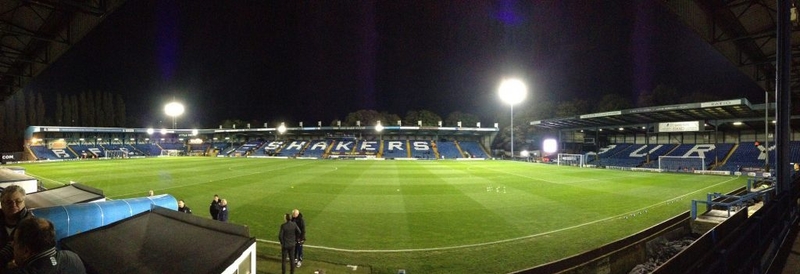
Why are you focusing on sport in the north? What's so specific to the north?
James Daly: "In the mill towns in the North of England, sport linked people from different backgrounds together. They were one of the mainstays of identity of terms of where you came from. The history, tradition and heritage of sporting clubs in the North in particular, is a matter of immense pride to people in the area in the best possible way.
"If you've got pride in your area, you want to do something good for it. You want to contribute to it. I think I think sport is culturally embedded in the North. But it's not the Premier League. It's embedded in the playing field and the hockey field. Go to any town in the North of England, and it may have died a little bit in terms of how many people are watching a local cricket team but it's still there and it still burns. And that passion is something that we're trying to tap into so that you can do real social good with it."
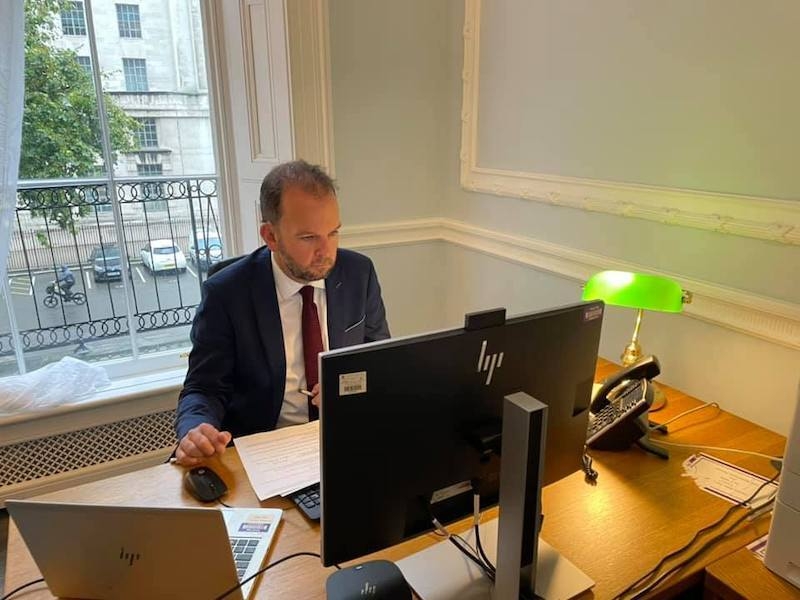
What is the Question of Sport inquiry trying to do about it?
JD: "It’s about harnessing shared collective experiences for the benefit of as many people as possible. Whether it’s the arts or sports, these are drivers of social change and regeneration of town centres. The pandemic has shown that we value those communal experiences and it’s about how we can harness those in a positive way for the benefit of everyone.
"The normal political thinking hasn’t felt that these are areas which we should be prioritising these things as key drivers of political goals, but they are and they been proven to be successful."
What value do you see sport bringing to an individual?
JD: "In the dim and distant past I was actually quite fit at some point in my life, and [when you keep fit] the world feels a better place and that impacts everyone around you.
"We’ve got to view sport as being inclusive as possible, and that means participation in sport. Playing sport has been elitist, in so far as if you are good at it you tend to do it and if you are not good at it you are cut out of the loop.
"Giving the example of my own club [Bury FC] the mental health impact of people losing their club was immense. Sport creates jobs, it creates footfall into town centres and the challenge to political decision-makers is to start thinking outside of the box of how we can get the best bang for taxpayers’ money. We have to have more confidence that investing in these facilities via the voluntary or charitable sector, outside of day-to-day political state control is actually a benefiting factor for everyone in towns and villages and cities throughout the country."
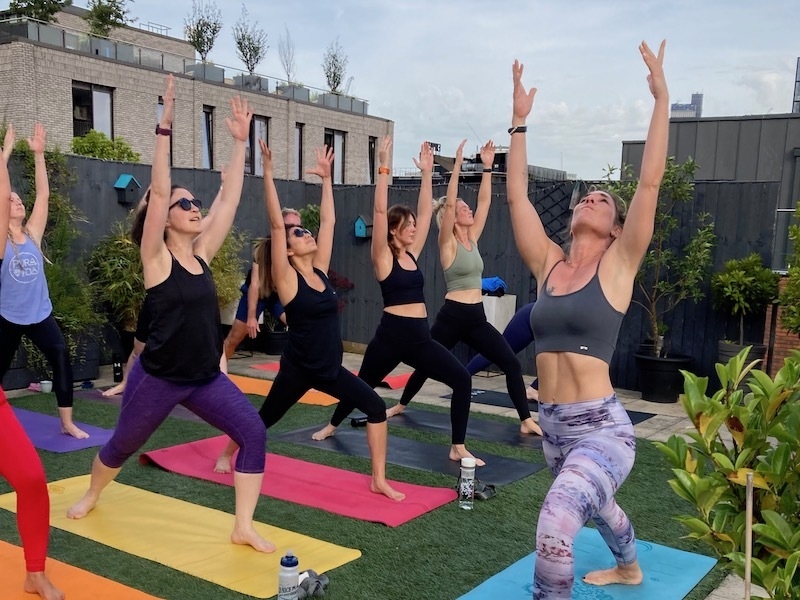
JD: "I think that sport is one of the very few things where it doesn't matter what your age is if you go to a cricket club on a Friday, you can be a hundred years old, you can be two years of age. All different religions, different sexualities, different backgrounds, people who have disabilities, but you were all there in that shared set of collective experiences.
"So the inclusivity potential of sport to unite people from different backgrounds is immense. It is the sporting activity which is the driver, not you just telling people to what to do."
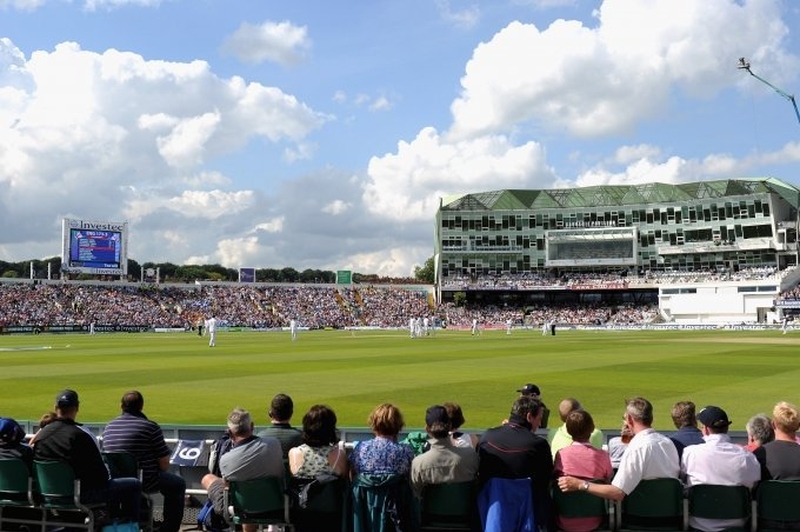
What will be the ultimate outcome of the inquiry?
JD: "There will report at the end of it and then my job is to influence government policy and try to influence local government policy and local decision-makers.
"National Government can give a steer in respect of these issues, but really is local councils and regional mayors who have a real opportunity devolved down to them to make a real difference to invest in infrastructure.
"I persuaded the government to invest a million pounds to save Gigg Lane and Bury Football Club, which was essentially going to be lost to the community forever. We'll see what the impact of that is. But I suspect in 10-15 years' time, the health, social and economic impact of that million pounds will be repaid in terms of the Exchequer through various tax and various other means, 10-15 times over.
"So a report will be produced. It's not law, but it's the basis for a wider debate that hopefully the MPs will join in, hopefully decision-makers will buy into. It's not simply politicians. We have to have the chief executives of councils, senior civil servants, senior government officials who are going to buy into this and it's not easy for them. They don't view this as their normal remit.
"We have a ticking time bomb in terms of health. Billions upon billions of pounds have been piled into the Health Service. Go to any town centre, and I count myself in this, you see people who are overweight who are living unhealthy lifestyles, and the pressures on NHS services will continue to get more and more severe as people do not take care of their own health.
"We tend to be clouded by the Premier League and think that we have this thriving amateur game that's going on underneath. We don't. After the age of 13 or so, active participation in amateur football drops off a cliff like most sports. We have to look at how we encourage physical activity throughout life."

Are you saying the funding is better invested upstream? Prevention is better than cure?
JD: "In terms of the health of our nation, it doesn't seem to work by just telling people you must be healthy or you must do this or you must do that. The state gets the most out of allowing people the freedom to and the opportunity to participate in the things that they want to do.
"That's how you influence policy, not by people like me simply lecturing people and talking about numbers going into various services. It requires a change in mindset. Decision-makers now have control, we will see if they're up to that challenge."
So, up to this point, do you think that government funding has been adequate in sport?
JD: "At this time billions of pounds have been ploughed into local government pipeline to the Shared Prosperity Fund and millions upon millions of pounds provided to local communities. It is for the local authorities to decide how that money is invested.
"Some local authorities invested in large-scale sporting facilities over a lengthy period of time, use the private and voluntary sector to run these fantastic facilities for them, and they've been able to service that debt and it's worked really well.
"It's a really interesting question of class. The richer you are, the more affluent your parents are, the more likely you are to be fitter, have opportunities to play sports and have the experiences that brings. I don't think that's fair.
"In my area, there's a wonderful cricket club that is the central hub of the community of Radcliffe, a town in the North of England. Now the place is decaying, they can't raise any cricket teams, no junior clubs. How can that be the case? These clubs thrived through two world wars, through all the social challenges of the last century and then something in the modern world that we have done has created that block between the local community and these local facilities that are there.
"So it's not just about building new things in town centres. It's about reinvigorating what we have or looking for partnerships as close as possible to local people to do exactly the same thing."
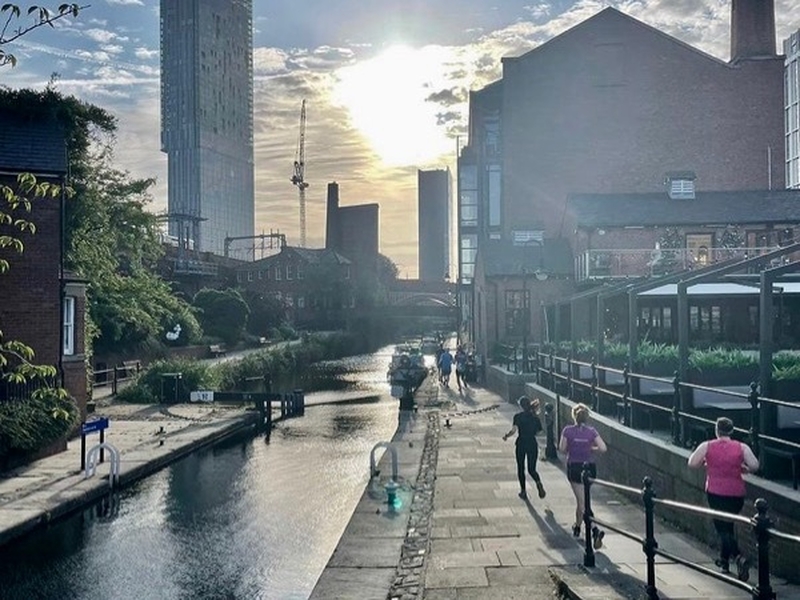
Doesn't that go against what you were saying about just letting people do what they enjoy?
JD: "People need to be introduced to it though. Many years ago, sport was a part of many families’ everyday life and now for many reasons youngsters are not introduced into the sport. If Bury Council, for example, could interact with others and say - we'll invest in this space, we'll create a really exciting new bar and cafe and we'll run some public services from this facility. Get people in to reintroduce them to the history and heritage of place because one of the things my committee is interested in is how you link the individual into that community.
"The Premier League and EFL seem to me in football, for example, just simply to consider themselves to be rule checkers. I think they need to have a good look at themselves and say - why do we exist?"
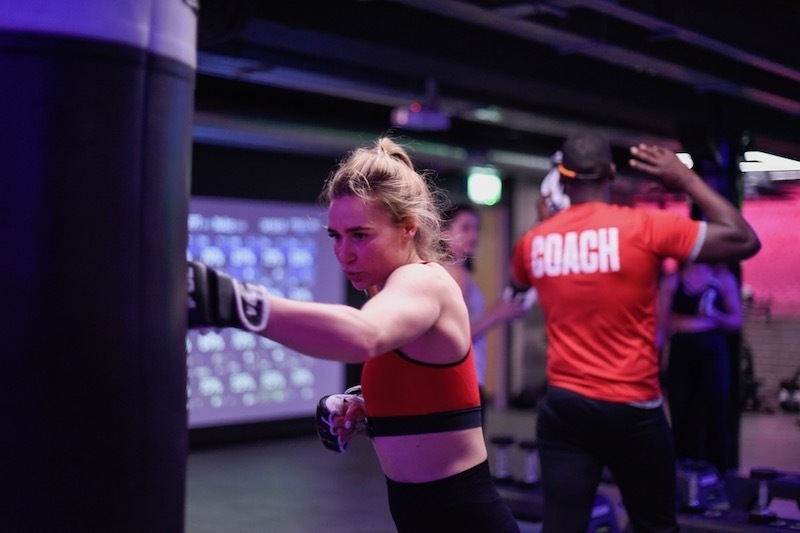
It seems that the Lower League clubs are extremely vulnerable to financial predation, what should we be doing about that?
JD: "Definitely regulation, but we have to accept that football is not financially sustainable because there is too high a ratio of wages.
"There are simply not enough wandering millionaires around who are going to be able to sustain them. Derby County is a case in point. I believe that the way that we view football has to fundamentally change and that is very difficult because a lot of people are getting paid a lot of money in football, I don't think they want the system to change. But if we want clubs to thrive and to be part of their community they have to and if that means that clubs are going to have to take perhaps not be as successful to get this reset then that's what we need.
"The Premier League are too keen to keep millions upon millions upon millions at the top of the game, not for investment in grassroots or wider social benefits that can bring but to pay people a lot of money. And that's where the problem is."
The Northern Culture APPG
The Northern Culture APPG wants to hear evidence on the contribution all sport – from elite to grassroots football to rugby, cycling, cricket, etc. – makes to building stronger and more diverse communities.
- What is needed to boost the cultural value of sport and build stronger communities across the North
- How much more cultural value could sport add to levelling up opportunities and access to culture
- How can sport drive cultural value, identity and diversity and contribute to the North’s rich seam of talent and grow the North’s economy?
Anyone can share their thoughts by submitting up to 2000 words to the Northern Culture website before 9am Monday 5 September. Some people may be invited to give oral evidence to the inquiry.
The Northern Culture APPG members are James Daly MP, Julie Elliott MP, Alex Sobel MP, Jason McCartney MP, Lord Sobel, The Lord Bishop of Leeds, The Archbishop of York and Tony Lloyd MP.





